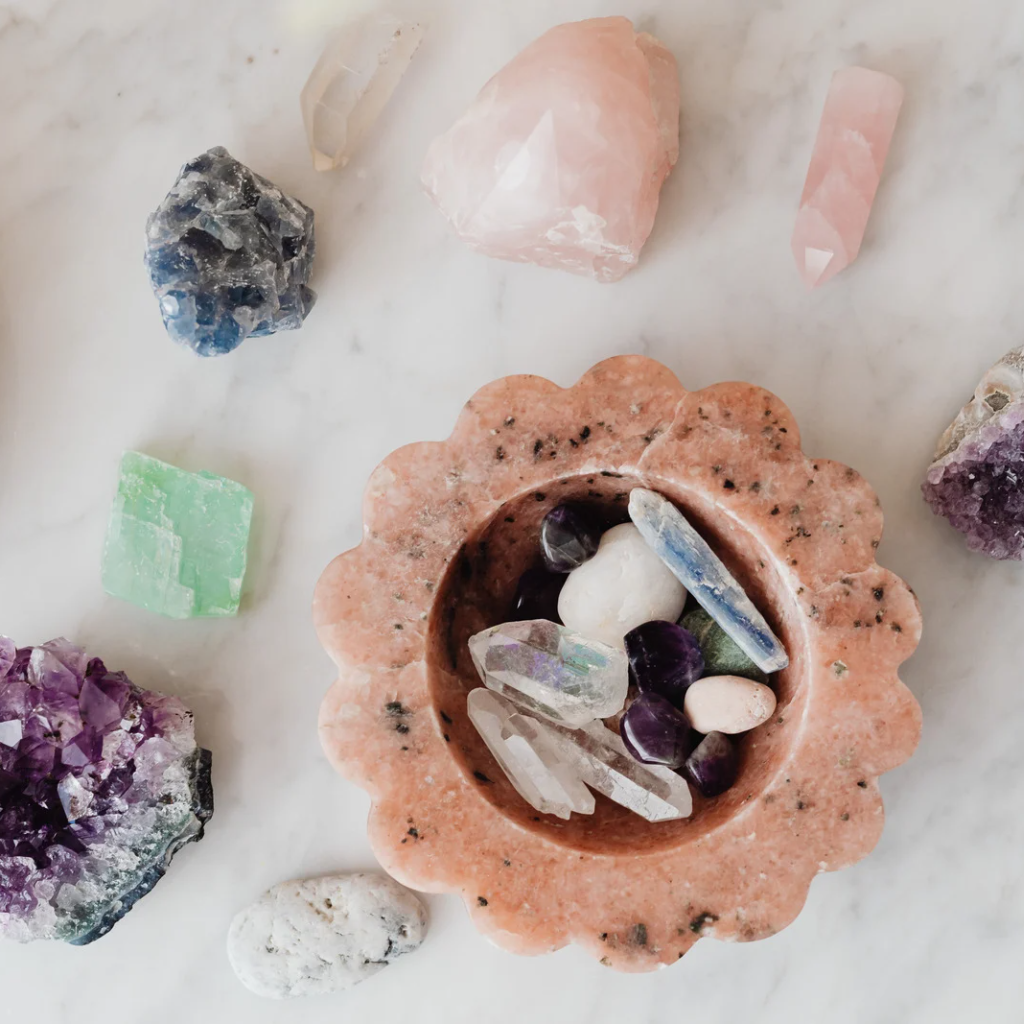How to Start a Meditation Practice

Meditation is a truly profound and enlightening experience that allows you to explore who you are, heal past traumas and overcome current conditioning. It allows you to accept the present moment fully and reduce anxiety and overthinking.
Meditation is an ancient practice that dates back to Vedic, or early Hindu, schools in India. In the 6th to 4th centuries BCE, the Chinese Taoist and Indian Buddhist traditions began to develop their own versions of a meditation practice. Meditation was initially used to develop an understanding of the deep and mystical secrets of life. Nowadays, often the focus is on mindfulness and stress relief but your meditation can have any goal you want it to - often you may start with one but it will lead you on a path of it's own.
Starting a regular meditation practice will have an incredible affect on your life and mental wellbeing but the trick is staying consistant and doing the right sort of meditation for you.
In case you need more convincing...
Benefits of Meditation
We've touched on a few points briefly but knowing the benefits of meditation will encourage you to start and stay consistant in your practice.
- Gaining a new perspective on stressful situations
- Building skills to manage your stress
- Increasing self-awareness
- Focusing on the present
- Reducing negative emotions
- Increasing imagination and creativity
- Increasing patience and tolerance
- Lowering resting heart rate
- Lowering resting blood pressure
- Improving sleep quality
- Nuturing self-love and love for others
- Improves concentration and focus
- Helps to balance emotions and energies
- Quiets a noisy mind
- Reduces the ego
Meditation has also been found to improve medical conditions such as:
- Anxiety
- Asthma
- Cancer
- Chronic pain
- Depression
- Heart disease
- High blood pressure
- Irritable bowel syndrome
- Sleep problems
- Tension headaches

Types of Meditation
There are many different ways you can meditate and trying a few different methods will help you to establish your practice and what works for you. You may start with one, and when your mind is able to focus for longer and maintain quiet and peace, then change to another style as your journey develops.
Please also note that while there are different styles of meditation, there are also different goals. You could do a guided mediation with the focus of mindfulness and breath-work or you could do one of a visualised journey of meeting your higher self. Read more about finding your focus below!
Guided Meditation
A guided meditation is a voice recording that leads you on a meditation journey as you explore your inner world. They are a wonderful way to maintain focus or begin your meditation journey. There are thousands of different options available on Youtube or apps like 'Calm' or 'Headspace'. These really work well for some people, you can pick a length of time and it allows you to set that dedicated time aside to meditate. For those with an over-active mind, a guided meditation can keep your focus and guide you into peace.
Breath-Work
Pranayama, or breathing exercises are a fantastic way of being mindful as all of your atention goes to your breath, allowing your mind to focus. You may wish to do a particular technique, such as Nadi Sodhana (Alternate Nostril Breathing) or simply be aware of your breath and the rise and fall of your stomach and chest. This can require some training of the mind initially to stay focussed as it may wonder, but is a great way of finding your zen!
Mantra Meditation
Repeating a mantra either in your mind or out loud can be really beneficial for quieting your mind and training focus, you also attune yourself to the meaning and energy of the mantra. Mantras are noises or phrases in a different language and are more about the energy of the noise as opposed to the meaning of the words. For further reading about mantras read our blog!
Mindfulness Meditation
Mindfulness is all about noticing the present moment and silently observing it without judging or holding on to it. Not only do you observe the outer sensations of the present moment, the focus is actually on observing yourself in the present moment, noticing the thoughts and feelings that arise and releasing them. This meditation style is excellent for those who already have learned some self-awareness, self-observation and focus from previous meditation practices, but you can also practice as a beginner.
Movement Meditation
Some people can have trouble being still and meditating, fortunately there are many options and a lot of practices have been developed that focus on mindful movement and breath awareness. Taking up a Yoga, Tai Chi or Qi Gong practice is an excellent way of holding space for mindfulness and mediation without needing to be still. You could also take a mindful walk through nature, really observing the details of nature and yourself as you walk through it.
What is Your Focus?
Your focus and goals for yourself will shape your meditation practice and so it is important to think about what it is you are hoping to get from meditation. You may not know exactly, but having an idea will help you find your path.
If you carry a lot of trauma and unhealed wounds, meditation may bring them to the surface which can either be really healing and beneficial or completely overwhelming, so being aware of this possibility is helpful and if you're ready you may wish to consciously work through this (please be careful and work with any health care professionals in your life).
Creating a Practice
Once you know how you want to meditate it is time to create a regular practice, we've provided some points to help you get started.
- Find a time that works - setting aside a regular time that you practice meditation daily will help you stay consistant and create it as a healthy habit. Practicing when you wake up or before bed often work, but you could also take a few minutes out of your lunch break to meditate.
- Start small - you will likely stay more consistant if you start meditating for a short period of time initially and building up. Even 5 minutes daily will make a difference.
- Create a comfy space - creating a quite and cozy space where you can meditate in peace will help you enjoy your practice and get the most out of it. Meditating in bed is often unhelpful as you are likely to fall asleep. Using blankets and pillows and perhaps a yoga mat can help you relax in your own space.
- Setting the mood - Lighting candles, burning oil or incense and playing music can really help you set the tone for your meditation, it will help you wind down and let your mind know it is time to relax.
- Making it your own - Incorporating crystals, cards, a short yoga session, chanting etc that is personal to you will not only help you enjoy it that little bit more but you will feel connected to your practice.

What meditation tips do you have? Share them in the comments!
By: Katrina Scales


Leave a comment